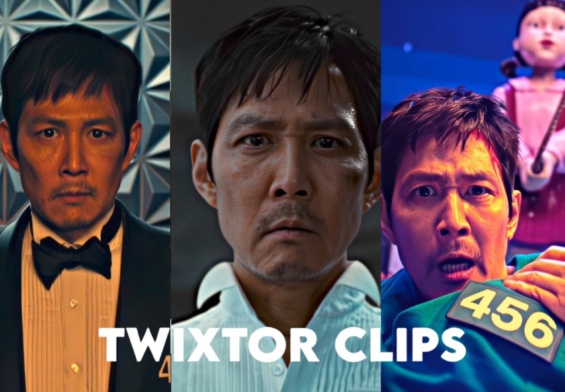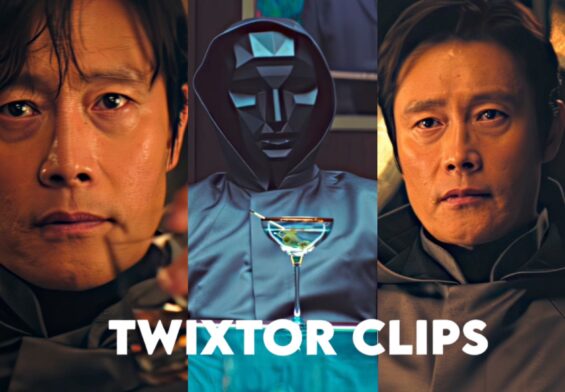♦ANIME WORLD TWIXTOR CLIPS♦
Download Movies Twixtor for Edits : https://moviestwixtor.com/movies-twixtor/
Download Series Twixtor For Edits : https://moviestwixtor.com/movies-clips/
Download Anime Twixtor for Edits : https://animeworldtwixtor.com/
Subscribe to Youtube Channel For More Clips & Twixtors : YOUTUBE
Text Me on Instagram To Request Twixtor / Clips / Promotion : RDJ EDITS / ANIMEWORLD
Guard 11 Twixtor
Squid Game: A Stark Reflection of Society Through Deadly Games
Squid Game, the South Korean television series that took the world by storm in 2021, is more than just a survival drama—it is a gripping social commentary wrapped in the intense thriller of deadly childhood games. Created by Hwang Dong-hyuk, the show captures viewers’ attention through its unique blend of suspense, emotional depth, and stark reflections on inequality, human nature, and desperation.
At its core, Squid Game revolves around 456 participants who are deeply in debt and desperate for money. They are invited to compete in a series of traditional Korean children’s games with a deadly twist: losing means death. The grand prize—a massive cash reward—is the only incentive driving these desperate individuals to risk their lives. This premise, while straightforward, becomes a powerful lens to explore the dark underbelly of economic disparity and human survival instincts.
One of the show’s most striking features is its critique of capitalism and the lengths people go to escape financial ruin. The contestants come from varied backgrounds—ranging from unemployed workers, gamblers, and immigrants to ordinary citizens crushed by mounting debts. Their participation highlights how economic systems can trap individuals in cycles of poverty, pushing them to extreme measures. Squid Game doesn’t just entertain; it forces audiences to confront uncomfortable questions about societal structures and the cost of survival. Guard 11 Twixtor Guard 11 Twixtor Guard 11 Twixtor Guard 11 Twixtor Guard 11 Twixtor Guard 11 Twixtor Guard 11 Twixtor Guard 11 Twixtor
The game itself is cleverly designed using simple childhood games like “Red Light, Green Light,” “Tug of War,” and “Marbles,” which adds a layer of eerie innocence contrasted with the brutal stakes. This juxtaposition intensifies the horror, as childhood nostalgia is turned into a deadly battlefield. The traditional games symbolize lost innocence and the harsh realities that await many adults, especially those burdened by debt and hardship.
The characters in Squid Game are another key element that elevates the story. Each participant is more than just a contestant; they are individuals with backstories, motivations, and flaws. Protagonist Seong Gi-hun is a flawed but relatable figure—a gambler struggling to reconnect with his family. His journey through the games explores themes of redemption, humanity, and sacrifice. Other characters, like the cunning Kang Sae-byeok or the moral dilemma faced by Cho Sang-woo, showcase the complexity of human behavior when survival is on the line.
The interactions between contestants highlight the duality of human nature. Some form alliances and show compassion, while others resort to deceit and violence. The series does not shy away from showing how desperation can strip people of their morals but also how moments of kindness and solidarity can shine through even in the darkest situations. This balance creates a nuanced narrative that keeps viewers emotionally invested.
Squid Game also uses striking visuals and symbolic imagery to reinforce its themes. The players’ numbered uniforms and the masked guards emphasize dehumanization and loss of identity, reflecting how participants are treated as disposable pawns. The eerie, colorful set designs contrast with the deadly nature of the games, creating a surreal atmosphere that enhances the story’s unsettling tone. The giant animatronic doll in “Red Light, Green Light” and the geometric shapes on the guards’ masks have become iconic symbols of the show’s unique aesthetic.
The series also delves into issues of power and control. The mysterious organizers of the game operate from behind the scenes, orchestrating the deadly competition for their own amusement. This shadowy elite mirrors real-world systems where the wealthy and powerful manipulate the vulnerable. The game itself becomes a metaphor for societal structures where the few hold control while the many struggle to survive.
Another powerful theme is the exploration of trust and betrayal. As the game progresses, alliances form but are constantly tested by fear and self-preservation. The shifting dynamics among players keep the tension high and reveal the fragile nature of trust in extreme conditions. This aspect adds psychological depth and unpredictability to the plot.
Ultimately, Squid Game resonates globally because it taps into universal fears and social realities. The harsh economic conditions many face today make the series’ portrayal of desperation and hope relatable across cultures. Its success lies not only in its thrilling plot but also in its ability to provoke thoughtful discussion about ethics, society, and human nature.
In conclusion, Squid Game is much more than a survival game show. It is a compelling reflection of contemporary society’s struggles with inequality, morality, and power. Through its well-crafted characters, symbolic games, and stark social commentary, it challenges viewers to look beyond the surface and question the systems that govern our lives. Squid Game leaves a lasting impact by combining suspenseful entertainment with profound insights into what it means to survive in a world marked by disparity and desperation.



